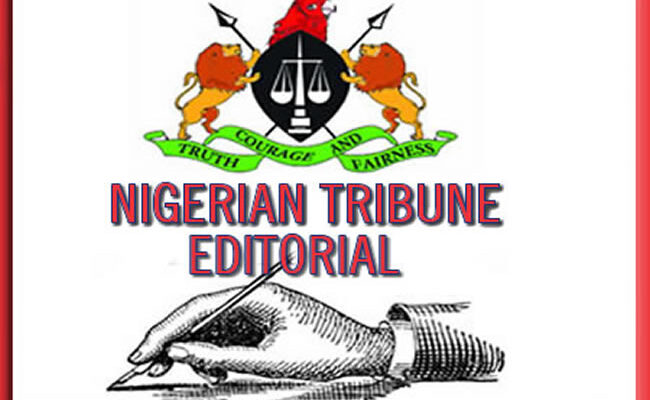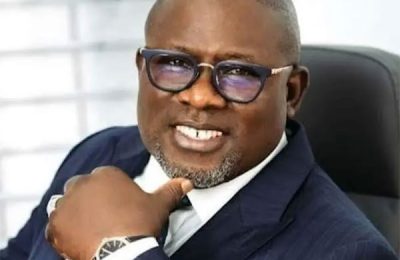

IN confirmation of the global angst against the ruinous economic path that Nigeria has trodden under the Muhammadu Buhari administration for the last seven and a half years, the World Bank, last week, projected that debt servicing will gulp 123.4 per cent of the Federal Government’s revenue in 2023. According to a November 2022 document titled ‘Nigeria Public Finance Review: Fiscal Adjustment for Better and Sustainable Development Results’ prepared by Alex Sienaert, the new World Bank Lead Economist for Nigeria, debt servicing will gulp 100.2 percent of Federal Government revenue by the end of this year. This is actually a decline from the earlier projection in its October Africa’s Pulse report, which is a biannual analysis of the near-term macroeconomic outlook for the region published during the World Bank/IMF Spring and Annual Meetings in April and October. In the latter report, the Washington-based institution had said that Nigeria’s debt service to revenue ratio could stand at 102.3 percent by the end of 2022.
As the global bank noted, “Nigeria’s debt remains sustainable, albeit vulnerable and costly, especially due to large and growing financing from the Central Bank of Nigeria. While currently the debt stock of 27 percent of the Gross Domestic Product is considered sustainable, any macro-fiscal shock can push debt to unsustainable levels. However, the debt to the GDP in Nigeria is rising quickly, and the total stock of debt in absolute value has almost doubled what obtained between 2016 and 2020, and without a policy change is expected to reach 40 percent of the GDP by 2025.” For 2023, however, the situation will be worse, as debt servicing is projected to exceed 118 percent of the revenue reported in the first four months of 2022.
While officialdom may have issues with the World Bank’s projection, there is no doubt that it shows the true state of the Nigerian economy. The government has tended to borrow more in response to the outcry over its endless borrowings. Yet, as Sienaert wrote: “Borrowing more is not the solution: debt costs are rising rapidly, squeezing non-interest spending. Debt servicing has surged over the past decade and is expected to continue increasing over the medium-term, crowding out productive spending.” That is not fortuitous because, for some time now, the government has failed to protect Nigeria’s oil assets and oil theft has increased astronomically, leading to a massive drop in revenue. As a matter of fact, oil theft has been an organised crime supervised or condoned by government officials. The glaring inability to protect oil assets forced the government to make a volte face and re-award surveillance contracts to the Niger Delta militant, Government Ekpemupolo (alias Tompolo), with the effect that earnings from oil have improved slightly since oil production improved. However, since it has not diversified the economy but merely mouthed rhetoric, the government has not been able to significantly expand the revenue base.

In our analysis of the 2020 budget, we had lamented the fact that 97 percent of Nigeria’s revenue went into debt servicing. Sadly, the situation has grown worse as the government failed to reduce Nigeria’s debt burden but actually increased it, joyfully spending money that the country has not earned and reconfirming its place in debt peonage. The auguries are indeed portentous; the government has sat idly by as non-state actors hijacked gold exploration and other sources of alternative revenue. That is why the World Bank’s projection should be alarming for all Nigerians who set great store by the need to have a functional and functioning country and society. The implication, quite simply, is that the country’s revenue in 2023 will not be enough to service its debts for the year even as government officials keep pretending that all is well with the country, going aborrowing and adding to the debt stock everyday.
As things stand, the country stands in the unenviable position of having to borrow to be able to meet its debt servicing obligation for 2023 since the total revenue for the year will not be enough to cover it. This definitely is a recipe for a new round of debt peonage for the country as it would have to contract debt to run itself for the new year, in the absence of any further revenue. This situation says a lot about the capability of those who have been in charge of the country’s finances and economy in the last few years. What kind of economic management leaves a country in this kind of debt fiasco?
Nigerians have to be much more critical of the quality and sense of responsibility of those they recruit through elections to take charge of the country. Non-quality leaders will keep getting the country into avoidable problems. The prospects of the World Bank’s projection are really dire and should spur Nigerians and even the current government to exhibit more ingenuity and criticality in proceeding into the future from here. Going forward, it cannot be business as usual.









